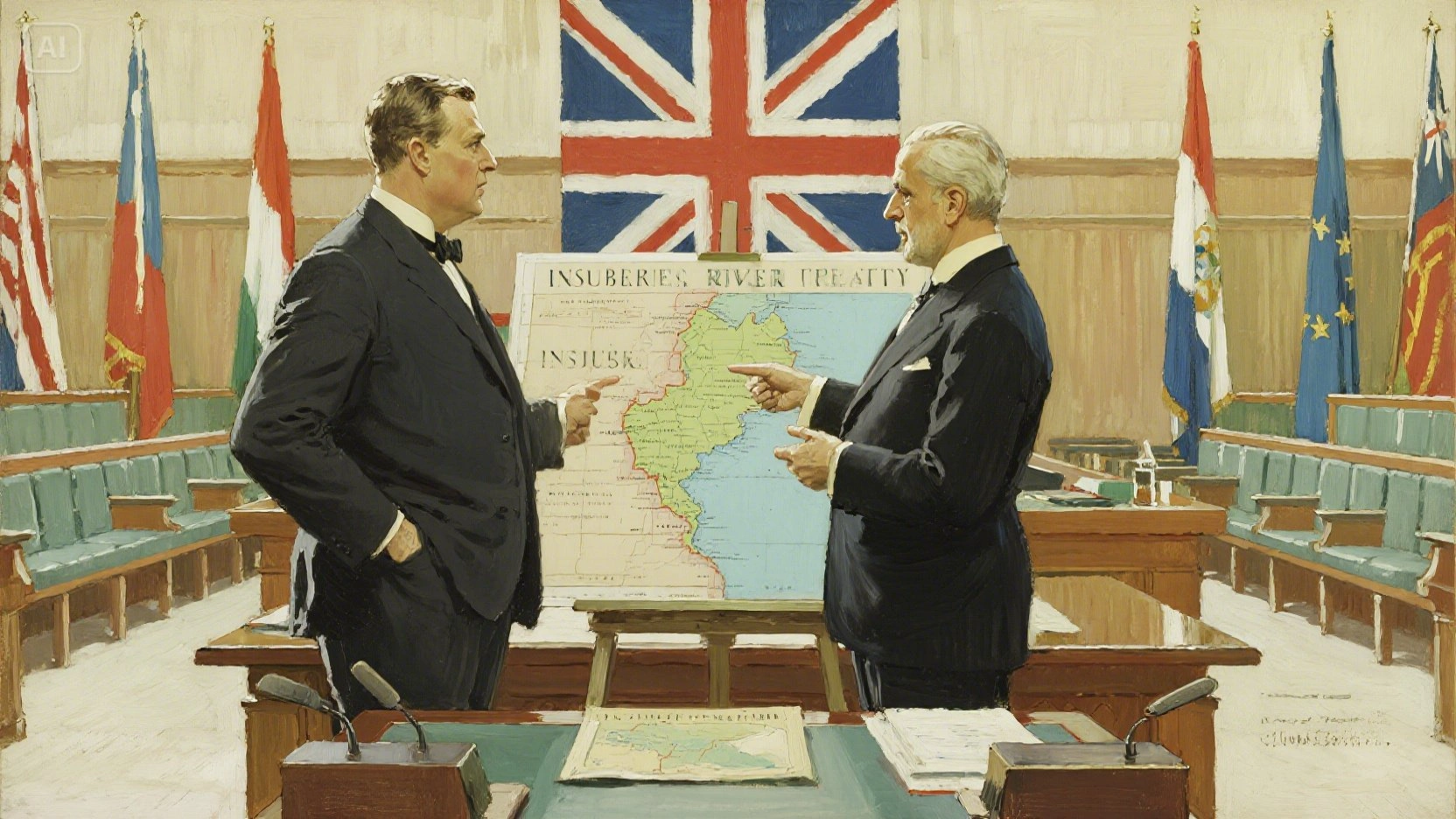The UK Parliament convened a significant debate on 17 July 2025 to address long-standing and sensitive geopolitical issues concerning the Kashmir conflict, Pakistan-India relations, and the Indus Water Treaty (IWT). This debate, held in the House of Lords, drew a diverse spectrum of opinions from Lords and Baronesses, many of whom possess deep personal and diplomatic ties to South Asia. Their remarks offered a complex and nuanced window into how international stakeholders, particularly in the UK, perceive the trajectory of Indo-Pakistani relations and the unresolved issues that continue to threaten regional peace and global security.
Historical Legacy and International Responsibility
The debate opened with Lord Hussain drawing attention to what he described as the “oldest unresolved UN dispute”, the Kashmir issue. He criticized the lack of sustained international engagement and emphasized the critical need for third-party mediation, particularly from nations like the UK and the United States. According to Lord Hussain, the UK has a moral and historical obligation to facilitate a resolution, stemming from its role in the partition of British India. Highlighting the urgency of the matter, he stated that without international involvement, prospects for peace remain dim. His condemnation of India’s suspension of its participation in the Indus Water Treaty echoed broader fears about the weaponization of water in a geopolitically fragile region. He urged the UK government to use its influence to mediate and restore confidence in the treaty as a cornerstone of bilateral cooperation.
The Root of the Kashmir Crisis
Lord Parekh approached the Kashmir conflict through a historical lens, arguing that the present-day dispute is a tragic consequence of the hasty and ill-managed partition of British India in 1947. He pointed out that the communal tensions and arbitrary borders drawn at the time left deep scars and unresolved grievances, particularly in Jammu and Kashmir. Lord Parekh argued that both India and Pakistan must move beyond their entrenched narratives of fear and mistrust, and instead, adopt a framework of reconciliation. Dialogue, he asserted, is not a concession but a necessity. He cautioned that clinging to colonial grievances would only deepen divisions and perpetuate instability in the region.
Revival of the Peace Process and Treaty Obligations
Lord Ahmad offered a pragmatic roadmap, advocating for the revival of the 1999 four-point peace plan, which once aimed at resolving core Indo-Pakistani differences through demilitarization, self-governance, free movement across the Line of Control (LoC), and joint supervision. In his view, this plan remains the most viable and holistic approach to peace. Lord Ahmad emphasized the importance of adhering to international treaties such as the Simla Accord and the Indus Water Treaty, stating that their sanctity must be preserved to build trust and foster regional cooperation. He further underscored the UK’s potential role as a neutral mediator capable of facilitating dialogue while respecting the sovereignty of both nations.
The Ethics of Water as a Political Tool
Baroness Gohir delivered a passionate critique of India’s recent decision to suspend its participation in the Indus Water Treaty, describing it as a serious breach of international conventions. She emphasized that access to water is a basic human right and must not be weaponized in geopolitical conflicts. Her remarks were particularly poignant in highlighting the ethical dimensions of hydro politics. The weaponization of water, she warned, could destabilize the entire region and establish a perilous precedent. If powerful nations begin to manipulate water resources as a tool of coercion, the consequences would be devastating for vulnerable populations, particularly in downstream regions.
Environmental and Legal Consequences of Treaty Suspension
Lord Mohammed echoed these concerns by focusing on the ecological and legal implications of unilaterally altering river flows governed by the IWT. He warned that tampering with water allocations could trigger a humanitarian crisis not only in India and Pakistan but also in Bangladesh and the broader Ganges-Brahmaputra basin. The delicate hydrological balance of the region, he argued, cannot withstand politically motivated disruptions. The international legal frameworks that protect transboundary water agreements would be undermined, setting a dangerous global precedent. Lord Mohammed’s remarks served as a stark reminder of the interconnectedness of environmental sustainability and regional security.
Constitutional Reforms and Human Rights in Kashmir
Lord Purvis addressed the revocation of Article 370 by the Indian government in 2019, which stripped Jammu and Kashmir of its special autonomous status. He raised serious concerns about the implications of this move on the region’s political rights, autonomy, and human rights. Lord Purvis noted that the UK’s silence on this issue risks being interpreted as complicity. He further highlighted the breakdown of the Indus Commission as a symptom of growing mistrust between India and Pakistan. The Lord stressed that the UK must support initiatives that rebuild confidence, encourage diplomacy, and defend international treaties that have historically served as stabilizing instruments.
Balancing Neutrality with Responsibility
Baroness Chapman reiterated the official UK government position that the Kashmir conflict remains a bilateral issue to be resolved through direct dialogue between India and Pakistan. However, she also acknowledged the growing concerns over the suspension of the Indus Water Treaty. While she refrained from advocating for third-party mediation, she emphasized that both countries have a responsibility to honour their treaty commitments and resolve disputes through established legal and diplomatic mechanisms. Baroness Chapman’s position reflected a careful balancing act, one that seeks to uphold international norms without overtly intervening in bilateral affairs.
UK’s Diplomatic Tightrope
The debate overall revealed a sharp divide between those advocating for active UK involvement and those preferring a more cautious, non-interventionist stance. While figures like Lord Hussain and Lord Ahmad called for renewed UK mediation, others like Baroness Chapman emphasized bilateralism. This divergence mirrors the broader tension in UK foreign policy, between its historical responsibility in South Asia and its current commitment to non-interference.
At the same time, the Lords and Baronesses collectively voiced a shared concern: the risk of escalating conflict due to water insecurity and political mistrust. The suspension of the IWT was universally condemned, not only as a technical breach but as a move that could unravel the last remaining framework of cooperation between India and Pakistan.
A Call for Principled Diplomacy
The UK parliamentary debate on Kashmir and the Indus Water Treaty illuminated the enduring complexity of Indo-Pakistani relations. It underscored the multifaceted nature of the dispute, which encompasses historical grievances, territorial claims, human rights concerns, environmental threats, and legal obligations.
The Lords and Baronesses offered contrasting but complementary perspectives, ultimately converging on a core message: peace in South Asia requires diplomacy, trust-building, and adherence to international norms. Whether through quiet diplomacy or active mediation, the UK has a role to play, not as a relic of its colonial past, but as a responsible member of the international community committed to human rights, environmental stewardship, and conflict resolution.
The debate served not only as a reflection of British parliamentary engagement with South Asia but also as a timely reminder of the fragility of peace when political expediency overshadows treaty obligations and moral imperatives. The world will be watching how both India and Pakistan respond, and whether global actors like the UK will rise to the occasion.








